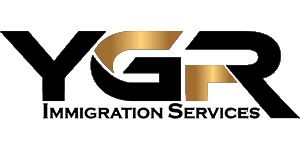Services: Economic Class
We are committed to assisting clients in achieving their immigration goals and establishing a bright future in Canada.
Economic Class
The Canadian Economic Class includes immigration programs designed to attract skilled workers, entrepreneurs, investors, and individuals who can contribute to Canada’s economy. These programs assess applicants based on skills, education, work experience, and ability to integrate into the labor market.
Federal Skilled Worker
Program (FSWP)
The Canadian Federal Skilled Worker Program (FSWP) is an immigration program aimed at attracting skilled workers who can contribute to Canada’s economy.
Key details of the program include:
Eligibility requirement: Applicants must have at least one year of work experience in a skilled occupation, meet language proficiency criteria, have equivalent education to Canadian standards, and earn minimum points based on selection factors such as age, education, language proficiency, work experience, adaptability, and arranged employment.
Selection process: The program uses the Comprehensive Ranking System (CRS), a points-based system. Candidates with the highest CRS scores are invited to apply for permanent residence through regular draws from the Express Entry pool.
Express Entry: The FSWP operates through the Express Entry system, an online application system for processing applications in various economic immigration programs. Applicants must create an Express Entry profile and meet the program’s eligibility requirements. Successful applicants receive an Invitation to Apply (ITA) for permanent residence.
Job offer: While not mandatory, a valid LMIA job offer can increase the chances of selection and provide additional points under the CRS.
Stay updated: It’s essential to refer to official Canadian government websites or consult with immigration professionals for the latest information on immigration policies and program requirements.
Please note that the information provided is a summary and may not include all the intricacies and specific details of the Federal Skilled Worker Program.




Federal Skilled Trades
Program (FSTP)
The Canada Federal Skilled Trades Program (FSTP) is an immigration program under the Canadian Economic Class that targets skilled tradespersons seeking permanent residency in Canada.
Key points about the program include:
Eligibility requirement: Applicants must have at least two years of work experience in an eligible skilled trade occupation, either with a valid job offer from up to two Canadian employers or a certificate of qualification issued by a Canadian province or territory. Language proficiency in English or French is required, and while there is no specific education requirement, higher education can earn additional points.
Selection process: The FSTP utilizes a points-based system called the Comprehensive Ranking System (CRS) to evaluate candidates based on factors such as language proficiency, work experience, job offer or certificate of qualification, education, and adaptability. Applicants with the highest CRS scores are invited to apply for permanent residence through regular draws from the Express Entry pool.
Express Entry: The FSTP operates through the Express Entry system, an online application system used for several economic immigration programs. Interested candidates must create an Express Entry profile and meet the program’s eligibility requirements. Successful applicants receive an Invitation to Apply (ITA) for permanent residence.
Job offer: Unlike the Federal Skilled Worker Program, the FSTP requires applicants to have a valid LMIA job offer for at least one year from up to two Canadian employers in a skilled trade occupation. The job offer must meet specific program requirements.
Staying informed: It’s important to stay updated on immigration policies and program requirements by referring to official Canadian government websites or consulting with qualified immigration professionals.
Please note that immigration policies and program details can change over time, so it’s advisable to consult official sources or professionals for the most accurate and up-to-date information regarding the Federal Skilled Trades Program.
Canadian Experience Class (CEC)
The Canadian Experience Class (CEC) is an immigration program in Canada that facilitates the transition of foreign workers and international students with at least one year of skilled work experience in Canada to permanent residency.
Key points about the program include:
Eligibility requirement: Applicants must have at least one year of full-time or equivalent part-time skilled work experience in Canada within the past three years. The work experience should be in an occupation classified under the National Occupational Classification (NOC) TEER 0, 1, 2, or 3. Language proficiency in English or French is required, and there are no specific educational requirements, although higher education can earn additional points. The program is not applicable to individuals with work experience gained in the province of Quebec.
Selection process: The CEC follows a points-based system that considers factors such as language proficiency, work experience, education, and age. Candidates are ranked using the Comprehensive Ranking System (CRS), and those with the highest CRS scores receive invitations to apply for permanent residence through regular draws from the Express Entry pool.
Express Entry: The CEC is managed through the Express Entry system, an online application system used for various economic immigration programs. Interested candidates must create an Express Entry profile and meet the program’s eligibility requirements. Successful applicants receive an Invitation to Apply (ITA) for permanent residence.
Job offer: Unlike some other economic immigration programs, the CEC does not require a job offer from a Canadian employer. However, having a valid job offer can provide additional points under the Comprehensive Ranking System.
Staying informed: It’s important to keep up-to-date with immigration policies and program requirements by referring to official Canadian government websites or consulting qualified immigration professionals.
Please note that immigration policies and program details can change over time, so it’s advisable to consult official sources or professionals for the most accurate and up-to-date information regarding the Canadian Experience Class.


Provincial Nominee Programs (PNPs)
The Provincial Nominee Programs (PNPs) in Canada are immigration programs operated by individual provinces and territories. They enable these regions to nominate individuals with the necessary skills and qualifications to meet their specific labor market and economic development requirements. PNPs are an integral part of the Canadian Economic Class, offering an additional pathway for skilled workers, entrepreneurs, and others to obtain Canadian permanent residency.
Key points about PNPs include:
- Eligibility Requirements: Each province and territory establishes its own eligibility criteria and selection factors for PNP streams. These generally encompass education, work experience, language proficiency, and adaptability to the specific region. Some streams may have targeted requirements for particular industries or occupations.
- Application Process: PNP applications usually involve two steps: nomination by a province or territory, followed by an application for permanent residence to the federal government. The specific process and requirements vary across provinces and territories.
- Occupation In-Demand Lists: Many PNPs maintain occupation in-demand lists that highlight occupations or industries with high demand in the respective region. Candidates with work experience in these occupations may receive an advantage when applying through the PNP.
- Express Entry Streams: Certain provinces and territories align their PNP streams with the federal Express Entry system. Eligible candidates who meet the criteria can receive a provincial nomination, earning additional points in the Express Entry Comprehensive Ranking System (CRS) and significantly improving their chances of receiving an Invitation to Apply (ITA) for permanent residence.
- Regional Immigration Programs: Some PNPs have specific regional immigration programs within their framework, tailored to address the unique needs of particular regions or communities. These programs may have distinct eligibility criteria and selection factors.
- Allocation of Nominations: Provinces and territories receive an annual allocation of nominations from the federal government based on their economic and demographic requirements. The number of nominations can vary from year to year.
It is crucial to note that the eligibility requirements, application processes, and available streams within PNPs may change over time. It is advisable to consult the official websites of the respective provinces or territories or seek guidance from qualified immigration professionals to obtain the most up-to-date and accurate information regarding the Provincial Nominee Programs.
Start-up Visa Program
The Canada Start-up Visa Program aims to attract innovative entrepreneurs from around the world to establish and operate businesses in Canada. The program is part of the Canadian Economic Class, focusing on economic growth and job creation.
Key Details:
Eligibility Requirements: Applicants need a qualifying business supported by a designated organization, demonstrating innovation, scalability, and job creation potential. They must obtain a commitment certificate from the organization, prove language proficiency, and have adequate settlement funds.
Application Process: Applicants must secure a letter of support from a designated organization, create an Express Entry profile, and indicate their interest in the program. Assessment is based on factors like age, education, language proficiency, work experience, and adaptability. If selected, candidates receive an Invitation to Apply for permanent residence and submit a complete application.
Benefits: Successful applicants and their families gain permanent resident status in Canada, offering access to healthcare, education, and social services. They also receive initial support from the designated organization and can tap into Canada’s supportive start-up ecosystem for mentorship, networking, and funding opportunities.
Note: The Start-up Visa Program has specific requirements and a complex application process. It is recommended to consult official Canadian government sources or immigration professionals for the most accurate and up-to-date information.


Agri-Food Pilot Program
The Canada Agri-Food Pilot Program is a targeted immigration initiative designed to address labor shortages in Canada’s agri-food sector by providing a pathway to permanent residency for skilled workers in this industry.
Key requirements include relevant work experience in eligible agri-food industries, a valid job offer, language proficiency, and meeting educational criteria. The program also considers settlement funds and intent to live outside Quebec.
The application process involves submitting required forms, supporting documents, and undergoing eligibility assessments. Successful applicants and their eligible family members can obtain permanent resident status, granting them access to Canada’s services and benefits.
Eligible Industries and Occupations:
Meat Product Manufacturing: Industrial butchers, meat cutters, and food processing laborers.
Greenhouse, Nursery, and Floriculture Production, including Mushroom Production: General farm workers and harvesting laborers.
Animal Production, excluding Aquaculture: Farm supervisors and specialized livestock workers.
Eligibility Criteria:
Work Experience: At least one year of full-time, non-seasonal Canadian work experience in an eligible occupation within the past three years.
Job Offer: A genuine, full-time, non-seasonal, and permanent job offer in Canada (outside Quebec) in an eligible occupation.
Language Proficiency: Minimum Canadian Language Benchmark (CLB) level 4 in English or French.
Education: At least a high school diploma or equivalent.
Settlement Funds: Proof of sufficient funds to support yourself and your family members, unless already working in Canada.
For the most accurate and updated details, consult official Canadian government resources or seek guidance from immigration professionals.


